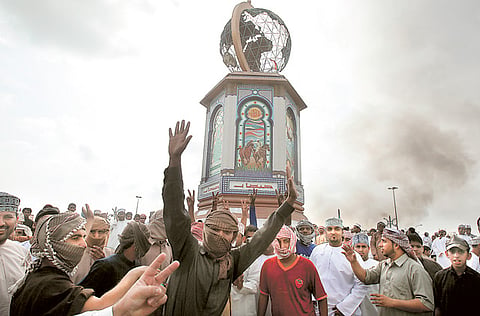Oman vows to join convention on labour unions
Move comes as authorities in Sultanate brace for another ‘summer of discontent’

Muscat: Oman’s government has pledged to ratify the international convention on the ‘Principles of the Right to Organise and to Bargain Collectively’ — a key statute that guarantees workers the right to unionise.
Manpower Minister Shaikh Abdullah Bin Nasser Al Bakri made the pledge while addressing the General Assembly of the International Labour Conference (ILC) in Geneva on Saturday.
The move comes as authorities in the Sultanate brace for another ‘summer of discontent’ similar to the labour unrest that swept the country a year ago. Those protests led to the creation of thousands of public sector jobs for unemployed Omanis, a steep increase in the minimum wage for unskilled workers, and a host of financial and non-financial benefits.
Wildcat protest
A wildcat protest that virtually hobbled the county’s critical oilfield industry late last month has ignited concerns about a wider spread of industrial action by mainly blue-collar workers demanding pay increases, medical insurance and better pension-related benefits.
As many as 151 labour syndicates — the official term for labour unions — have so far been registered by the Manpower Ministry, Al Bakri said, in a reference to the government’s commitment to upholding the rights of workers to organise themselves and engage in peaceful industrial action.
All of these ‘syndicates’ are affiliated to the officially recognised General Federation of the Workers of the Sultanate, which represents the country’s labour force at international labour conventions.
Further, in an effort to co-opt various stakeholders in promoting harmonious industrial relations, the Ministry has also set up a so-called ‘Social Dialogue Committee’ with representatives from the government, employers and workers.
The panel, which grew out of the recent labour crisis affecting the oil industry, has been tasked with preempting potential strike action by proactively addressing the concerns of disgruntled workers.



![Oman’s Maritime Security Centre confirmed four crew members injured. [Illustrative image. ]](http://media.assettype.com/gulfnews%2F2026-03-01%2Fv5np7wj5%2FOil-tanker.jpg?w=320&auto=format%2Ccompress&fit=max)